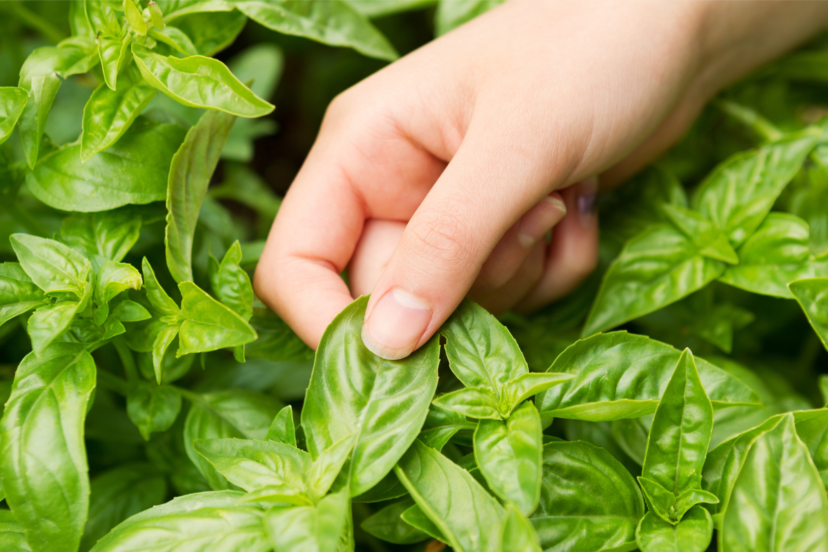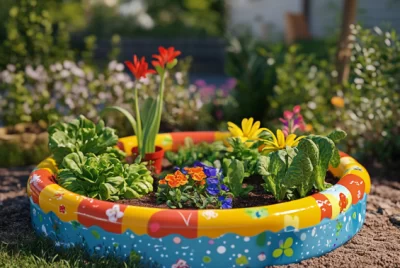Hydroponic Basil: A Journey from Seed to Harvest
Hydroponic basil is one of the more popular things to grow in a soilless environment. It is also one of the easier and beginner friendly choices. This article is aimed at helping you understand the nuances of cultivating hydroponic basil.
Understanding Hydroponics
What is Hydroponics?
Hydroponics, at its core, is a method of growing plants without soil, using mineral nutrient solutions in a water solvent. This technique has evolved over centuries, adapting to modern technologies and methodologies.
A Brief History
The roots of hydroponics date back to ancient civilizations, but it was in the 20th century that this method saw significant advancements, leading to the efficient systems we see today.
Why Choose Hydroponic Basil?
Benefits Over Traditional Soil
Growing basil hydroponically offers several advantages over traditional soil cultivation. These include faster growth rates, higher yields, and the ability to control environmental factors more precisely.
Hydroponics vs. Soil Cultivation
In hydroponic systems, plants often receive nutrients more efficiently than in soil, leading to healthier, more robust growth. Plus, it eliminates many soil-borne diseases and pests.
Getting Started with Hydroponic Basil
Essential Equipment
To begin, you’ll need basic equipment like a hydroponic system, which can range from simple DIY setups to advanced automated systems, nutrient solutions, pH testing kits, and grow lights.
Choosing Basil Varieties
Various basil varieties thrive in hydroponic systems. Some popular choices include Genovese, Sweet Basil, and Thai Basil, each offering unique flavors and growth characteristics.
Setting Up Your Hydroponic Basil System
Step-by-Step Setup Guide
Setting up your hydroponic system involves assembling the reservoir, adding the nutrient solution, setting up the grow lights, and planting the basil seeds or seedlings.
Beginner Tips
Start small and simple. A deep water culture (DWC) system is an excellent choice for beginners due to its simplicity and effectiveness.
Hydroponic Basil Nutrient Solutions and pH Balance
Importance of Nutrients
In hydroponics, the nutrient solution is the lifeline for your plants. It must contain the right balance of macronutrients and micronutrients for healthy growth.
Managing pH Levels
Maintaining the correct pH level, typically between 5.5 and 6.5 for basil, is crucial for optimal nutrient uptake.
Hydroponic Basil Lighting and Temperature Control
Ideal Lighting Conditions
Basil requires adequate lighting to thrive. LED grow lights are a popular choice, providing the necessary light spectrum without excessive heat.
Temperature Requirements
Basil grows best in warm conditions, ideally between 70-80°F (21-27°C). Consistent temperature control is vital for healthy growth.
Hydroponic Basil Water Management
Water Quality
Using clean, filtered water is essential to prevent the buildup of harmful minerals and to maintain a balanced nutrient solution.
Effective Water Cycling
Regularly cycling your water and refreshing the nutrient solution helps prevent nutrient imbalances and keeps your basil healthy.
Hydroponic Basil Pest and Disease Management
Common Pests
Despite being less prone to pests, hydroponic systems can still face issues like spider mites or aphids. Regular inspection and maintaining a clean environment are key preventive measures.
Dealing with Diseases
Root rot and mildew can be challenges in hydroponic systems. Proper aeration and maintaining clean systems help mitigate these issues.
Pruning and Harvesting Hydroponic Basil
Pruning Techniques
Regular pruning not only helps maintain the shape of your basil plants but also encourages fuller, bushier growth.
Harvesting Tips
Harvest basil by snipping the leaves or tops as needed, promoting continuous growth and preventing the plant from becoming leggy.
Challenges in Hydroponic Basil Cultivation
Common Issues and Solutions
Challenges like nutrient imbalances, pH fluctuations, and pest invasions can arise. Being proactive and monitoring your system closely helps address these issues effectively.
Economic and Environmental Benefits
Cost-Effectiveness
Once set up, hydroponic systems can be very cost-effective, especially with reduced water and nutrient usage compared to traditional gardening.
Sustainability
Hydroponics is a sustainable farming method, using significantly less water and allowing for year-round cultivation with minimal environmental impact.
Advanced Hydroponic Basil Tips and Tricks
Enhancing Flavor
Experimenting with different nutrient solutions and light spectrums can enhance the flavor and aroma of your basil.
Experimentation
Don’t be afraid to try different varieties or hybrid systems. Each experiment can lead to exciting discoveries in the world of hydroponics.
Community and Resources
Joining Communities
Engaging with hydroponic gardening communities, both online and locally, can provide invaluable support, advice, and inspiration.
Recommended Resources
Books, online forums, and educational videos are great resources for expanding your knowledge and staying updated on the latest techniques.
Conclusion
Hydroponic basil cultivation is a fulfilling and sustainable gardening practice. Whether you’re a seasoned gardener or a curious beginner, the world of hydroponics has something for everyone.
FAQs
What is the best hydroponic system for growing basil?
Deep Water Culture (DWC) systems are excellent for beginners due to their simplicity and effectiveness.
How often should I change the nutrient solution in my hydroponic basil system?
It’s recommended to change the nutrient solution every 2-3 weeks to maintain optimal nutrient balance.
Can I grow different varieties of basil together in one system?
Yes, you can grow different varieties together, but ensure they have similar light and nutrient requirements.
What are the signs of nutrient deficiency in hydroponic basil?
Yellowing leaves, stunted growth, and weak stems can indicate nutrient deficiencies.
Is hydroponic basil more flavorful than soil-grown basil?
Many growers report more intense flavors in hydroponically grown basil due to controlled nutrient and environmental conditions.




